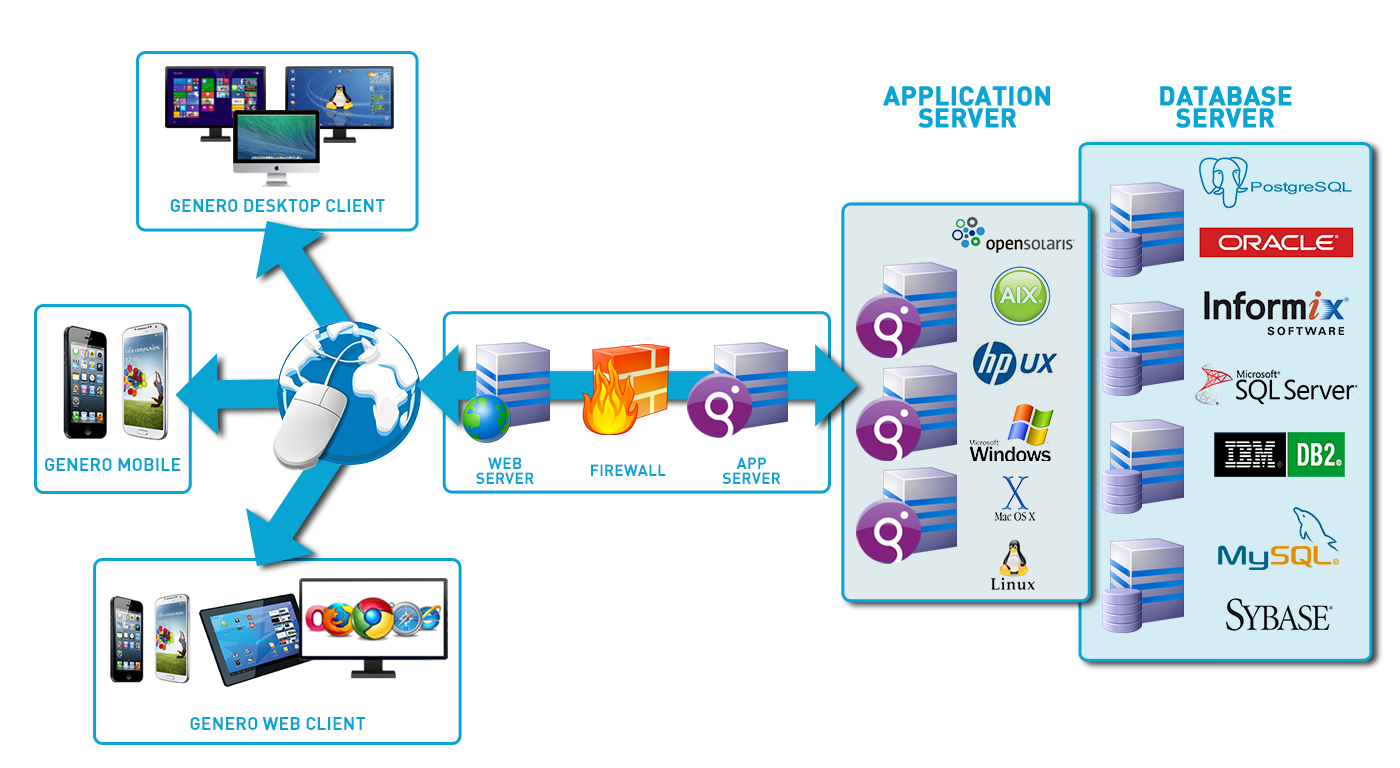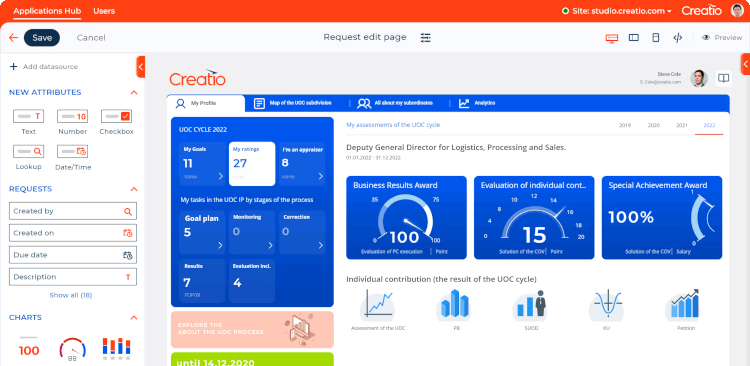No-Code Open Platform Data Source Development: Simplify Facility Advancement Jobs
No-Code Open Platform Data Source Development: Simplify Facility Advancement Jobs
Blog Article
Exploring the Benefits of Scalable Databases That Require No Coding Skills for Efficient Data Monitoring Solutions
The appearance of scalable data sources that eliminate the necessity for coding skills offers a transformative chance for organizations looking for efficient data monitoring remedies. As we take into consideration the effects of such improvements, it comes to be vital to analyze exactly how they can reshape the landscape of data administration and drive lasting development in a competitive atmosphere.
Enhanced Accessibility for Users
Boosted access for customers is a crucial aspect of scalable databases, ensuring that information administration systems are user-friendly and instinctive. In an age where data-driven choices are extremely important, accessibility permits a wider series of individuals, consisting of those without extensive technical competence, to engage with database systems properly. This democratization of information gain access to assists in boosted collaboration across departments, empowering workers to make and draw out insights informed decisions.
Easy to use user interfaces, such as visual data and drag-and-drop attributes depiction, simplify complicated data interactions. These improvements decrease the understanding curve related to conventional database monitoring, making it possible for individuals to concentrate on leveraging information as opposed to coming to grips with technological complexities. Scalable data sources often incorporate real-time analytics and adjustable dashboards, supplying individuals with prompt insights customized to their specific needs.

Cost-Effectiveness and Source Savings
Efficient information management not only depends upon access but likewise on cost-effectiveness and source savings. Scalable data sources designed for individuals without any coding skills substantially decrease financial burdens generally associated with conventional database monitoring systems. By removing the need for specialized programming experience, companies can assign their resources a lot more effectively, concentrating funds on core service activities rather than extensive training or working with experienced personnel.
In addition, these databases usually make use of cloud-based services, which additionally minimize prices associated with equipment and upkeep. Organizations can scale their data source solutions according to their requirements, preventing the expenditures incurred from over-provisioning sources. This adaptability implies companies can adjust to altering demands without incurring unneeded prices, bring about considerable long-lasting financial savings.
Additionally, straightforward interfaces streamline data access and administration procedures, minimizing the time invested in administrative tasks. This performance equates into labor cost financial savings, allowing groups to concentrate on calculated efforts instead of regular maintenance. In general, taking on scalable databases that require no coding abilities fosters a more economical strategy to data administration, making it possible for companies to optimize their resources while keeping high degrees of functional effectiveness.
Improved Cooperation Throughout Teams

Furthermore, scalable databases facilitate smooth interaction amongst group members. With easy to use interfaces that need no coding abilities, staff members can easily develop, change, and share records or dashboards tailored to their specific needs. This democratization of information encourages non-technical users to add insights, boosting the joint atmosphere.
Furthermore, these databases sustain simultaneous gain access to, allowing multiple individuals to function on the very same dataset concurrently. This function enhances performance, as teams can involve in joint data evaluation without the risk of version control concerns. The capability to leave remarks or notes directly within the data source better advertises discussion and clears up data interpretations.
Streamlined Data Management Processes
In today's data-driven setting, companies recognize the need of structured information monitoring processes to optimize performance and accuracy. By leveraging scalable data sources that need no coding abilities, businesses can simplify their information handling and reduce the intricacies generally connected with traditional database systems. This ease of access equips non-technical individuals to involve directly with information, helping with quicker decision-making and minimizing reliance on specialized IT employees.
Streamlined data management processes improve operations by automating regular jobs such as information access, validation, and reporting. Automated data assimilation guarantees that information from different resources is aggregated effortlessly, eliminating silos and fostering a combined sight of essential business metrics (no-code). Furthermore, straightforward interfaces allow personnel to manipulate data conveniently, allowing them to produce understandings that drive critical initiatives without the requirement for considerable training.
This effectiveness not just speeds up functional procedures yet also reduces the capacity for human error, making sure that data remains reputable and precise. Ultimately, streamlined information monitoring procedures with scalable databases cause enhanced performance, permitting organizations to concentrate on core tasks while ensuring that their information management practices are reliable and effective.
Scalability for Growing Organizations

For expanding business, the capability to scale up or down is essential. A scalable data source can manage an increase of information created from brand-new clients, products, or services, making certain that business procedures continue to be uninterrupted. Furthermore, these databases offer the capability to manage peak lots effectively, which is important throughout durations of quick development or seasonal spikes.
In addition, several scalable database services are created with straightforward user interfaces that require no coding abilities, equipping non-technical personnel to manage data successfully (no-code). This democratization of information administration permits organizations to allocate sources strategically and reduce dependence on specialized IT personnel
Inevitably, taking on a scalable data source not just improves operational effectiveness yet additionally promotes an environment where services can advance and introduce without the restraints of standard database systems. This adaptability settings companies for lasting success in today's competitive landscape.
Verdict
In conclusion, scalable data sources that require no coding skills give significant benefits for efficient information monitoring. By Read More Here improving data administration procedures and providing Resources scalability for expanding services, such options make it possible for companies to adapt to changing needs successfully.
Enhanced accessibility for individuals is an important facet of scalable data sources, making certain that information management systems are intuitive and straightforward.Easy to use user interfaces, such as aesthetic data and drag-and-drop attributes representation, simplify complicated information communications. Generally, taking on scalable databases that call for no coding abilities cultivates a much more cost-effective method to data administration, enabling companies to maximize their sources while preserving high levels of functional performance.
By leveraging scalable databases that call for no coding skills, services can simplify their information handling and decrease the complexities generally connected with typical data source systems - no-code.Streamlined data monitoring processes improve operations by automating routine jobs such as data entry, recognition, and coverage
Report this page